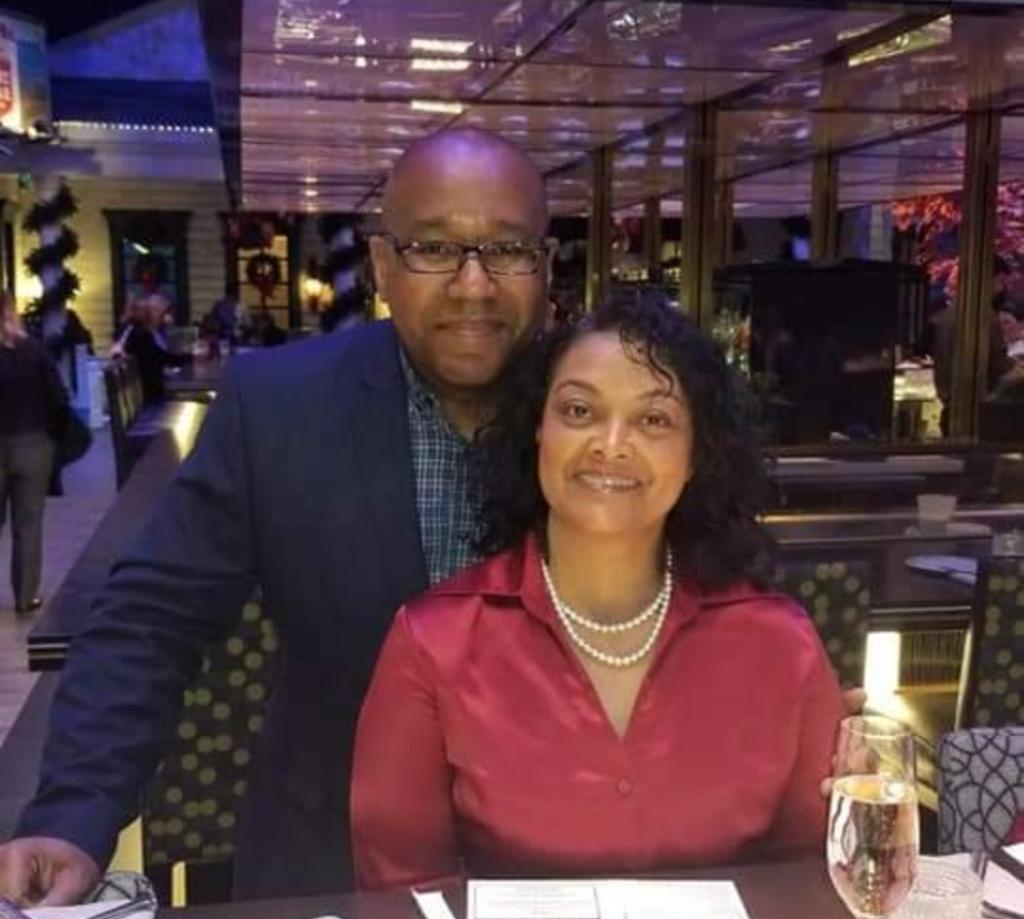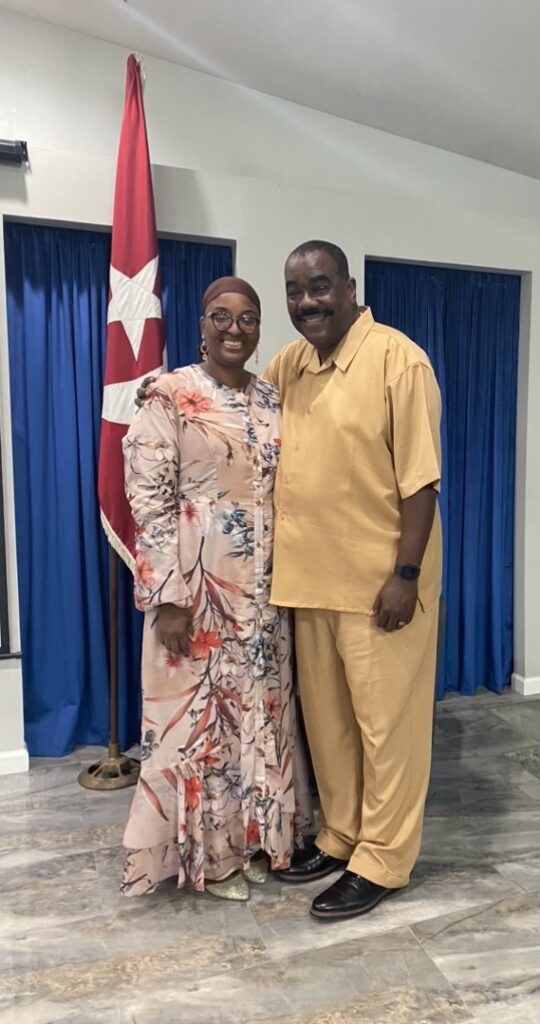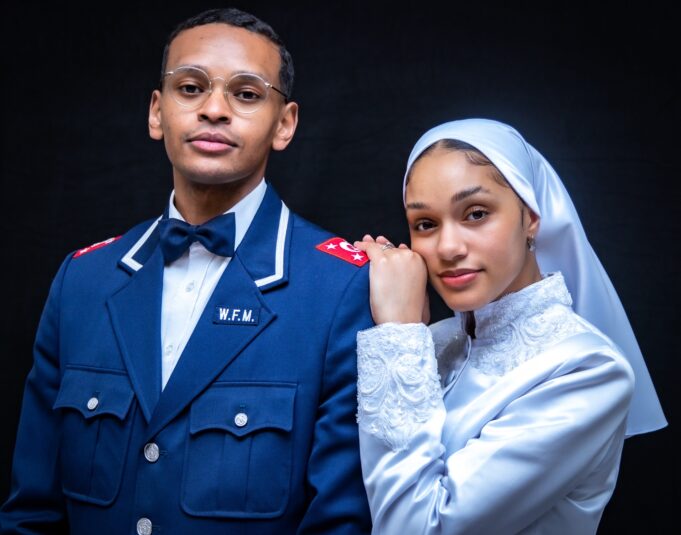In today’s society, ever-evolving dynamics threaten Black couples’ efforts to develop and sustain strong marriages and families. But the journey to become one as man and woman under God “until death do us part,” as pledged during marriage vows, can be a both a beautiful and challenging endeavor.
Poverty, unemployment, health disparities, incarceration and financial hardships cut across racial lines, especially among the nation’s poor and working class. All are contributing factors to decreasing marriage rates, say analysts.
While love forms the foundation of any marriage, it takes extra effort due to those challenges. It takes open, effective communication and resilience to make marriages last.
The Most Honorable Elijah Muhammad, the Eternal Leader of the Nation of Islam, stressed the importance of marriage and family to his followers. Marriage and family are the cornerstone and foundation of a great nation, and critical to the very survival of the Black nation in particular, teaches His top student, the Honorable Minister Louis Farrakhan, who on September 12 will celebrate his 70th wedding anniversary with his beautiful wife, Mother Khadijah!

“There is no success in building a nation without the building of family. There is no success in the building of family without the respect and honor for the institution of marriage. However, we are beset with divorce and the problem of infidelity,” stated Minister Farrakhan, in his address from Mosque Maryam in 2006.
“As a result of divorce and infidelity, hatred is building between mothers and fathers, which is causing children to suffer. We can talk about many things that are important in life, but nothing is more important or sacred than family and the cornerstone of family, which is marriage,” he said.
The Minister further said he wants to see successful marriage in the Nation of Islam and among Black people.
“Marriage in Islam starts with the recognition that we are not complete without a woman, or without a man if you’re a woman. But the critical part of male/female relationships is in setting up a social context where men and women can meet each other under proper circumstances that do not degenerate into vile speech or actions.
Every mosque should set up proper social circumstances for single Brothers and single Sisters to meet each other. The proper setting is not at clubs or places where women are disrobed and men try to pick up a woman for a one-night stand,” said Minister Farrakhan.
During the last few decades, marriage has been a declining institution among all Americans and this decline is even more evident in the Black community, according to BlackDemographics.com, which was created in 2007 to be a one-stop, unbiased site that showcases only the facts about Black people in America.

“In 2020 only 30 percent of African Americans were married compared to 48 percent of all Americans. Half or 50 percent of African Americans have never been married compared to 34 percent of all Americans,” it indicates.
According to Black Demographics, available data indicates that although fewer Black women are “now married,” more Black women than Black men have been married at least once. This is because a higher percentage of Black women are divorced and widowed than men, it found. Also in 2020 just under half or 48 percent of Black women had never been married, which is up from 44 percent in 2008 and 42.7 percent in 2005, according to the online resource site.
The Minister and Mother Khadijah are the reasons that Brother Marcus Muhammad and his wife, Sister Cecelia, hosts The Marriage Keepers’ Marriage Retreat, stated Brother Marcus. Many people encourage couples to get married, but there aren’t many people who can help them stay in the process, he said. He and Sister Cecelia have been married for 31 years, but he could point to their early days and the impact of the Minister’s words of wisdom, on videos, he shared.
“The things he was saying was so revolutionary to a young, Muslim couple! It really made our marriage so wonderful, because we had the Minister in our ear, teaching and guiding us every step of the way,” Brother Marcus stated. When they grew tired of each other, it was the Minister’s words that made them find Allah (God) and make Allah sufficient for their marriage, he said.
For Sister Cecelia, the Minister and Mother Khadijah are a great example for the Nation of Islam and the Black community of staying power and long-suffering and what love looks like.
“We know who the Honorable Minister Louis Farrakhan represents in our midst and to see him successful in marriage and family is an example of what he teaches us, the sacredness of the institution of marriage,” she said. She was reminded, from his own words, that people do not know the sacrifices that Mother Khadijah and their family has had to make for him to stand and be who he is, for us.
“They are a stunning example that we can do marriage. We can do family. We can do the hatred and the disdain and the rejection of this world, and be successful in our marriage and daily family life,” Sister Cecelia said.
Billy Carr and his wife, Chantal, of Round Rock, Texas, have been married for 21 years, as of June 30th. Like many, their keys to a strong marriage all come down to communication.

“Even though the Bible does talk about the two shall become one, it is a lot of communication and talking and really understanding your partner, because you’re not the same person,” said Mrs. Carr. Two are coming together and forming a new entity and even though they are leaving certain things, parts of self behind, they won’t be changing into a completely different person, she said.
That pertains to views about a myriad of things surrounding marriage and family, whether it be rearing children, money, even down to grooming, according to the Carrs, Black marriage counselors and therapists.
One way the Carrs weather inevitable storms that all marriages face is knowledge. It is understanding that challenges stem from the lack of knowledge being passed down through generations, Mr. Carr said. As part of today’s Generation X, to Millennials to Gen Z they have the most access to information but communicate the least, he stated.
“I think that’s to our detriment. Even before you get to unions, and I’m not even talking about marriages, just the ability to appropriately converse and associate yourself with another individual, I think you first have to understand how to conduct yourself as an individual,” Mr. Carr explained.
That includes how to think, assess, reason, trust, believe, and what to believe in, he and his wife concurred.
“The elders lacked in terms of education and/or book knowledge, but they were extremely wise and learned people. They understood individuals. They understood group dynamics. They understood politics in a way that I don’t think we quite understand them,” continued Mr. Carr.
That is what makes the work of events like the annual Marriage Retreat, founded by Brother Marcus and Sister Cecelia, and Black Love and Marriage by Ayize and Aiyana Ma’at, the Wedded Bliss Foundation by Dr. Nisa Islam Muhammad, and Codie and Tommy Oliver’s Black Love, Inc. so vital.
The Ma’ats founded Black Love and Marriage to provide individual, couples, and group coaching and counseling on a limited basis. The high school sweethearts have been together for 27 years and married for 20, according to their website, blackloveandmarriage.com. Their services are for individuals and couples who are experiencing difficulty and disconnect and deeply want to “get unstuck” and move forward in their relationship, as well as those who feel their relationship needs a tune up.
The Ma’ats lift up commitment, connection, courage and communication as four keys to unlock everlasting love for a successful and unwavering marriage.
“When it comes to commitment, a lot of people are playing this double-dutch game – one foot in, one foot out. It’s really important if you expect to have a healthy, strong, successful relationship, strong marriage, that you have both feet in and that you’re 10 toes down:
That you’re committed to your marriage, committed to the process of evolving your marriage, and in order for that to take place, you’ve got to be courageous enough to look at self and do your own personal work so that you can show up better, not just for yourself but also for your marriage as well,” stated Mr. Ma’at.
People oft-times enter marriage without the proper orientation, for example, they come ready to take, receive, with the thought, “What have you done for me lately,” but not what they should give, said Mrs. Ma’at. A real examination of how one may give back is necessary so real challenges that arise can be addressed from the right perspective, and for them, that literally means always being able to articulate what your areas of vulnerability are, she said.
They also emphasize that mindset is extremely important when it comes to misunderstandings and empathy, and encourage couples to prioritize agreement over misunderstandings, according to Mr. Ma’at. And if there’s nothing else that folks can start doing in their marriages, just start validating more, emphasized his wife. For example, really lift up what’s heard that makes sense, she said.
“Maybe you don’t actually think anything that they’re saying makes sense, but what is it that you can validate, because you can at least understand from their perspective how they might feel,” she stated.
“Black love is an essential part of Black life,” stated Dr. Nisa Islam Muhammad, executive director of the Wedded Bliss Foundation. That’s from little things like the way a couple looks at each other, to large things like their commitment to marriage and the development of a family, she said.
Her organization works to help teens and young adults create healthy relationships to that lead to healthy marriages.
For years, the Olivers have featured Black married people during their Black Love series. Recently, they debuted “On the Couch: The Story of Black Love“ on the Black Love+ app, YouTube, and social channels to offer some insights into their journey as the creators of the “Black Love” docuseries, according to their online post outlining the purpose.
“Black people can have healthy, loving, long-lasting relationships. But just like anyone else’s relationship, longevity isn’t without hard work,” wrote Mrs. Oliver.
The hard work manifests through resilience in parenting and family values that require consistency and no short cuts, according to couples, whether newly married or celebrating decades of their union. It isn’t just about clocking numbers for the sake of cake-cutting, candle-blowing, and balloon-popping.
It’s about honoring, first, each other’s commitment to God and being sincere and courageous enough to acknowledge problems and seek help, couples and advocates say. Beyond the individuals in the couple, hard work extends to rearing children within a strong Black marriage as a top priority, not hiding behind children or using them as scapegoats and certainly not weapons against husbands or wives, they added.
“In the Nation of Islam, what we have been given as the life-giving Teachings from the Honorable Elijah Muhammad and the Honorable Minister Louis Farrakhan makes it such that we are able to endure some of those storms with right guidance and equip us with something that gives us another level of strength to go through those storms so we may come out of them stronger, rather than weak,” stated Student Minister Sultan Muhammad of Muhammad Mosque No. 61 in Grand Rapids, Michigan. He and his wife, Takiyah, will have been married for six years come this November and have two children.
In their late 20s and early 30s, the couple observed that among their peers, people are coming together to marry, but unfortunately they aren’t staying together. He sees that as young couples unite out of the natural compassion and love that Allah deposited with them for each other as male and female, they don’t always have the guidance to deal with the nature that is made to challenge them.
Sister Takiyah sees young women in her generation, in a faith-based community or not, struggle to have it all before they end up getting married, according to society’s standards.
“That just says to me that they don’t necessarily fully understand what a spouse is. We are to help each other meet our obligation and sometime we go into marriage and we expect not to deal with struggle that comes with having somebody put up a mirror to you 24/7,” she stated.
Admittedly, that type of accountability can be very difficult, especially at a young age, but Islam provides a strong foundation to overcome and persevere, she said.













